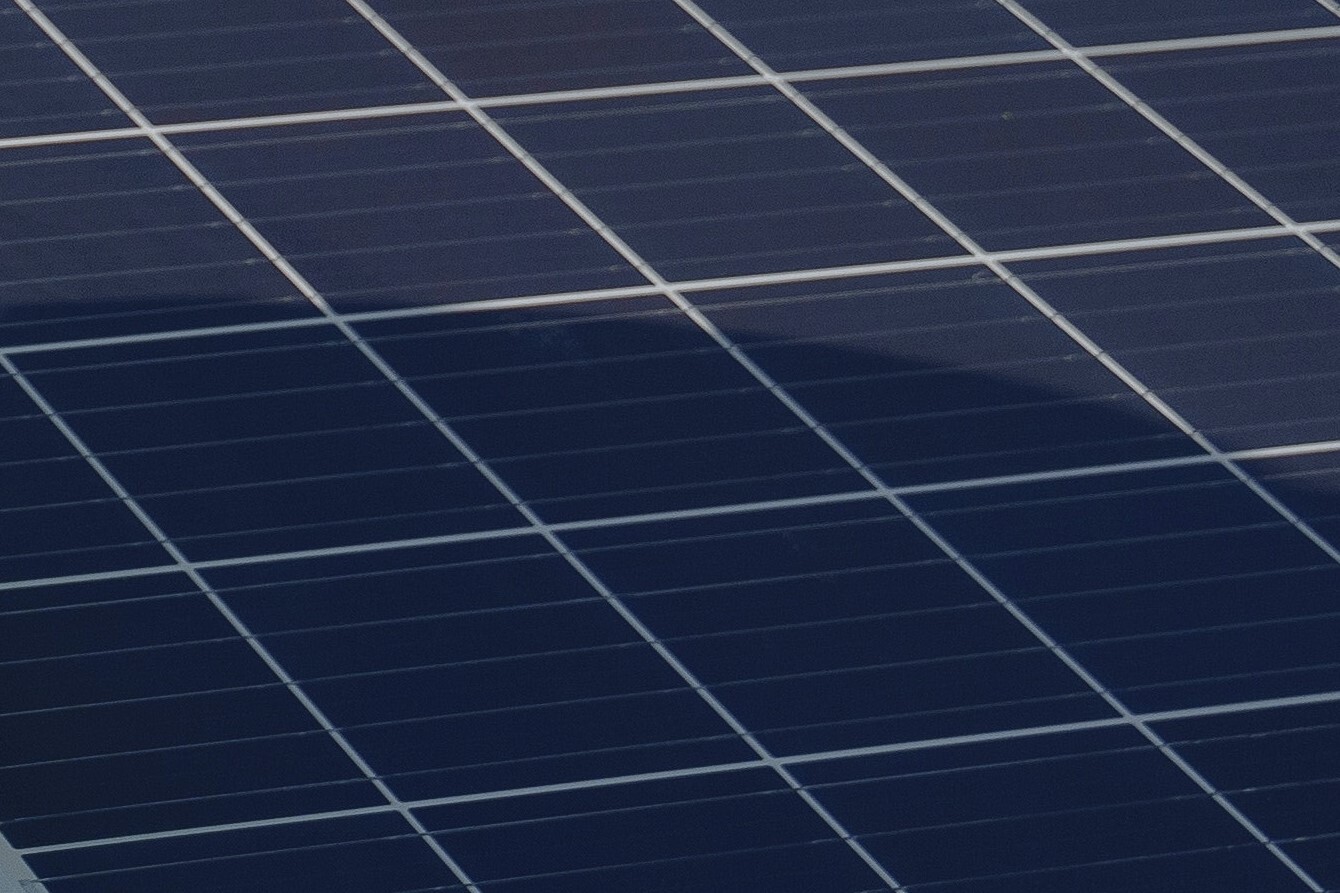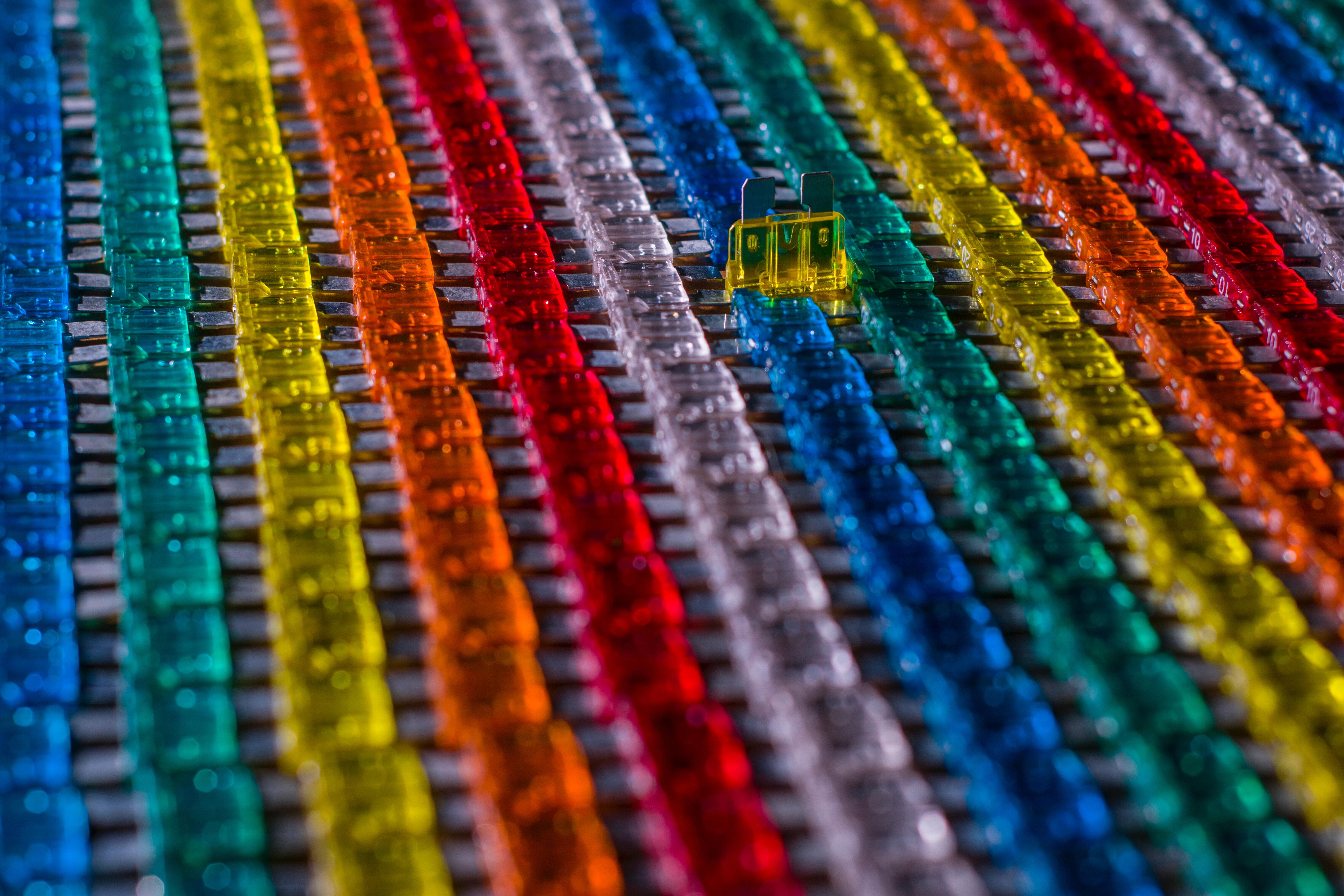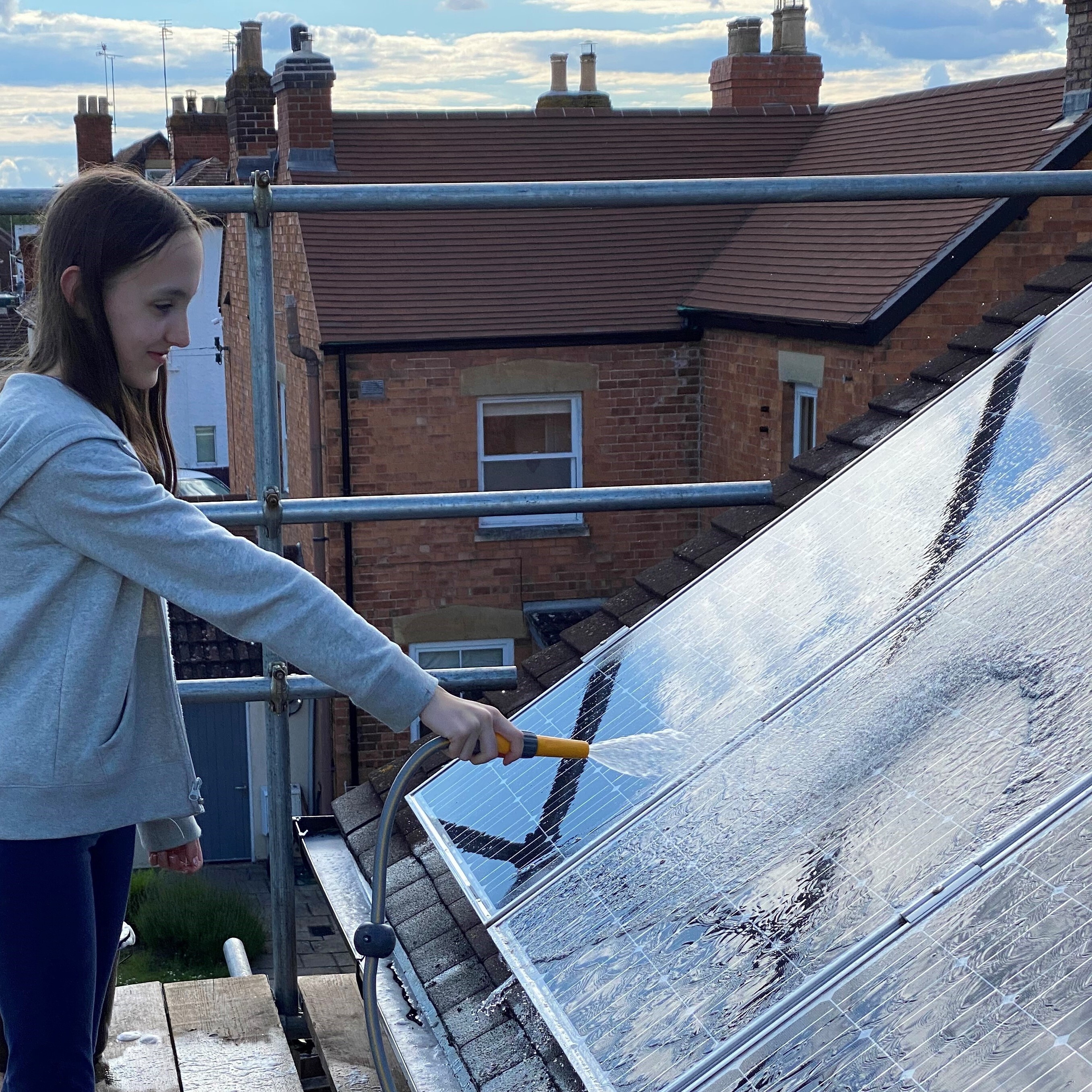Even if your power demand cannot be totally replenished via a solar panel, either due to available space, or project viability and cost effectiveness, any solar panel installed will postpone the point at which your battery will lose power completely and extend the time you are not connected to the grid.
Once you have the desired solar panel for your installation, please read the following to help get the best performance and power production from your solar panel.
Top Tips
Positioning
Position is possibly the most important tip of all. A bad position will always cause your panel to perform badly. Position your solar panel so that you give the solar panel the best possible light conditions, most importantly avoiding shade!
Orientation
Generally, facing south (UK) at a tilt of 35-700 will achieve your best performance unless you have access to a tracking system that will follow the sun and therefore max out the performance you can get each day from the solar panel.
Leisure vehicles will often have the panels mounted horizontally; not so much of a problem when the sun is high in the sky during summer months but will hamper the performance in the winter when the sun is low in the sky. Increasing the wattage size of the solar panel(s) can help compensate for horizontal mounting if the space is available.
Free standing panels may also be a consideration if roof space will not allow the desired physical size of solar panel(s) you require.
Shade

Solar panel in partial shade
Partially shaded or completely shaded panels will not operate to designed performance. If the solar panel is shaded, or partly shaded it will dramatically affect the performance of the solar panel, leading to poor battery charging and even total loss of charging power.
Dirt also 'shades' the panel and can have a dramatic effect on performance, so it’s best to keep your panels clean. (More on this below.)
Location
Geographical location will affect performance. Daylight hours, local weather conditions and temperature will also play a part in the performance. Making sure the panel is in a position where it’s not shaded for part of the day and is not in a dirty environment where dirt could get onto it is crucial to getting the best from your panel.
Artificial light
Artificial light, unless especially designed for solar flash testing, has a very poor conversion rate. Parking under a streetlamp will have no real effect and could possibly fade paintwork around your panel!
Other Tips
Time of year
Weather conditions and the position of the sun in the sky. When the sun is low in the sky the air mass figure increases; This means that light has a greater distance of the Earth’s atmosphere to penetrate.
Light travels through space without appreciable energy loss but the Earth’s atmosphere will absorb some of the light’s energy, especially if cloudy or contaminated with industrial particulates (pollutants).
Cables
When installing your solar panel, use the correct size cable for the installation. 2.5mm cross section would be suitable for most leisure installations up to 200w panels. 4mm cable may be used on installations with a high voltage or high current demands.
Some panels are available with 4mm cable pre-wired. It’s always good practice to continue with the cable size supplied with the solar panel.
Keep cable runs to the shortest length possible (but not tight and under tension) this will minimize circuit resistance/impedance and reduce voltage drop.
Check connections and fuses periodically. Solar energy can be very subtle, and a complete failure or poor performance will not always be immediately recognized.
Fuses
The making capacity is the rating of the maximum current the fuse can carry without failing.
The breaking capacity is the rating at which the fuse will fail or rupture.
Refer to fuse manufacturers specifications for more information on this. Damage to the installation or the cable will occur under fault conditions if fuses of too high a value are fitted. Nuisance fuse failure will occur if the fuse value is too low.

A collection of colourful blade fuses
The fuse supplied with your solar panel installation kit should be of the correct value. Contact us if you are unsure what fuse size is required for your system.
Take care not to install a fuse of over high capacity as this may lead to component and wiring damage/fire under fault conditions.
Check fuses for continuity; Fuses can become weak with age and fail under “No Fault Conditions”.
Fuses have two ratings, making capacity and breaking capacity:
Connections
Check all connections at the charge controller and the battery. DC battery connections can be prone to high resistance joints which can be due to corrosion and oxidization; Connections can become loose over a period, especially on vehicles, due to vibration.
Make sure all connections are clean and tight. Make sure any stray strands of wire cannot cause shorts between connections.
Cleaning & Care

Washing solar panels
Keep the solar panel clean! Panel contamination (dust, dirt, bird droppings etc) will not allow the desired amount of light to reach the solar cell, therefore causing the panel to operate at a lower efficiency and not to the designed wattage output. Dirt is basically shading the panel.
Rain will wash away some dust and dirt if installed at an angle/pitch, but solar panels installed horizontally will become more contaminated and will require cleaning more often.
Solar panels on a pitch will have contamination washed away when it rains but will still benefit from the occasional clean. Always hand clean with warm soapy water, never use abrasives, chemicals, scrapers, or tools on the solar panel.
On Marine applications, salt will be a consideration; this can cause corrosion and the salt crystals can damage surfaces, especially with the semi-flexible solar panels. Carefully remove any salt contamination by washing the panels with warm soapy water.
As you can see most of the above advice is common sense and, with a little care, your solar panels will perform at their best for many years to come. By making sure the panels are not in shade and are kept clean you will always get the best performance from them.
If you have any questions about this blog or just want to understand more about solar panels, then contact us.
Kevin
